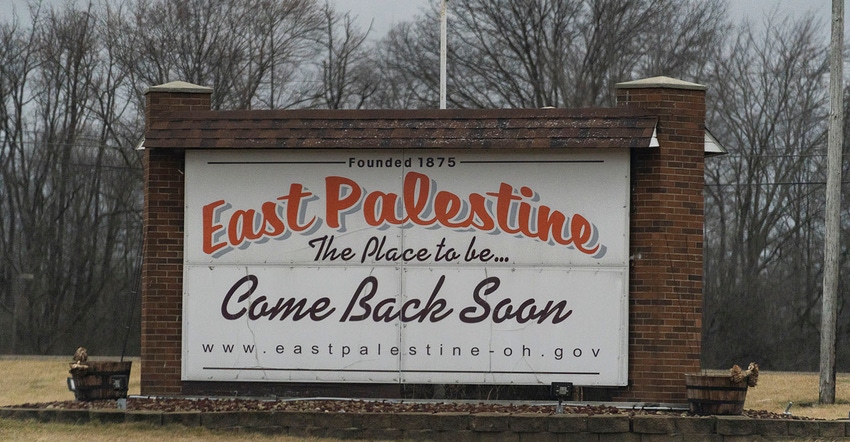How a Train Derailment Became All About Plastics
Advocacy group Toxic-Free Future seized on the Norfolk Southern train derailment in Ohio to advance its anti-plastics crusade.
February 25, 2023

There has been a lot of finger pointing in the aftermath of the Norfolk Southern train derailment in East Palestine, OH, that spilled chemicals, poisoning wildlife and putting residents at risk. Certainly, operations at Norfolk Southern and rail transport safety practices in general and the response by local, state, and federal officials should all be scrutinized. But should this event be drafted into the war on plastics? Toxic-Free Future and similar-minded advocacy groups seem to think so.
The train was carrying vinyl chlorine monomer (VCM) and other chemicals, including butyl acrylate and ethylhexyl acrylate, when it derailed on Feb. 3. Some of those chemicals spilled out from the derailed cars. To prevent a potential explosion, Norfolk Southern initiated a "controlled burn" of the chemicals on Feb. 6. This resulted in the formation of a “chemical plume” that was moving from the Ohio River toward Virginia as of Feb. 16, according to the Ohio EPA, a full 10 days after the burn started. Numerous residents had to be evacuated. VCM is a key ingredient in polyvinyl chloride (PVC), and the other ingredients are also used in plastics production. And that’s all advocacy group Toxic-Free Future needed to sound its clarion call.
“Sadly, this is yet another painful reminder of the dangers of making, transporting, using, and disposing of chemicals in plastics, especially polyvinyl chloride (PVC) plastic,” commented Toxic-Free Future. “PVC is widely considered to be the most toxic plastic from production to use to disposal. It’s most commonly used in building materials like PVC plastic piping and vinyl siding.”
The statement went on to enumerate the many evils of PVC and calling for a phase-out of PVC “and other highly hazardous plastics and chemicals.”
Toxic-Free Future neglects to mention that PVC is the most widely used plastic in healthcare, where it has a decades-long record of saving lives. It did acknowledge the role that PVC piping plays in repairing our aging water infrastructure, but suggested that this is somehow a bad thing. I could go on, but I realize I’m preaching to the choir.
The fact is that all kinds of chemicals, some of which may be toxic under certain conditions, not to mention all kinds of other goods that may also be harmful, need to be transported. We don’t have vertical integration in every community across this great land. Many of these chemicals have nothing to do with plastics, but if they spill into the environment because of a train accident, the consequences can be just as devastating, if not more so. So, shouldn’t we be focused on improving railway safety protocols?
Commenting on the derailment on his HBO program, Last Week Tonight, on Feb. 19, John Oliver hit the nail on the head, as he does more often than not. “This accident is exposing much more than just chemicals. It is exposing . . . issues like how freight trains . . . are regulated,” said the bespectacled one. He went on to address the “antiquated braking systems” on these trains that can have well over one hundred railcars. “On many trains, each railcar receives the stop signal one after the other, instead of all at once, costing valuable seconds.”
I don’t know what braking system the Norfolk Southern train had or if that would have even prevented or lessened the impact of this accident, but maybe start there before leapfrogging into an anti-plastics screed?
About the Author(s)
You May Also Like




